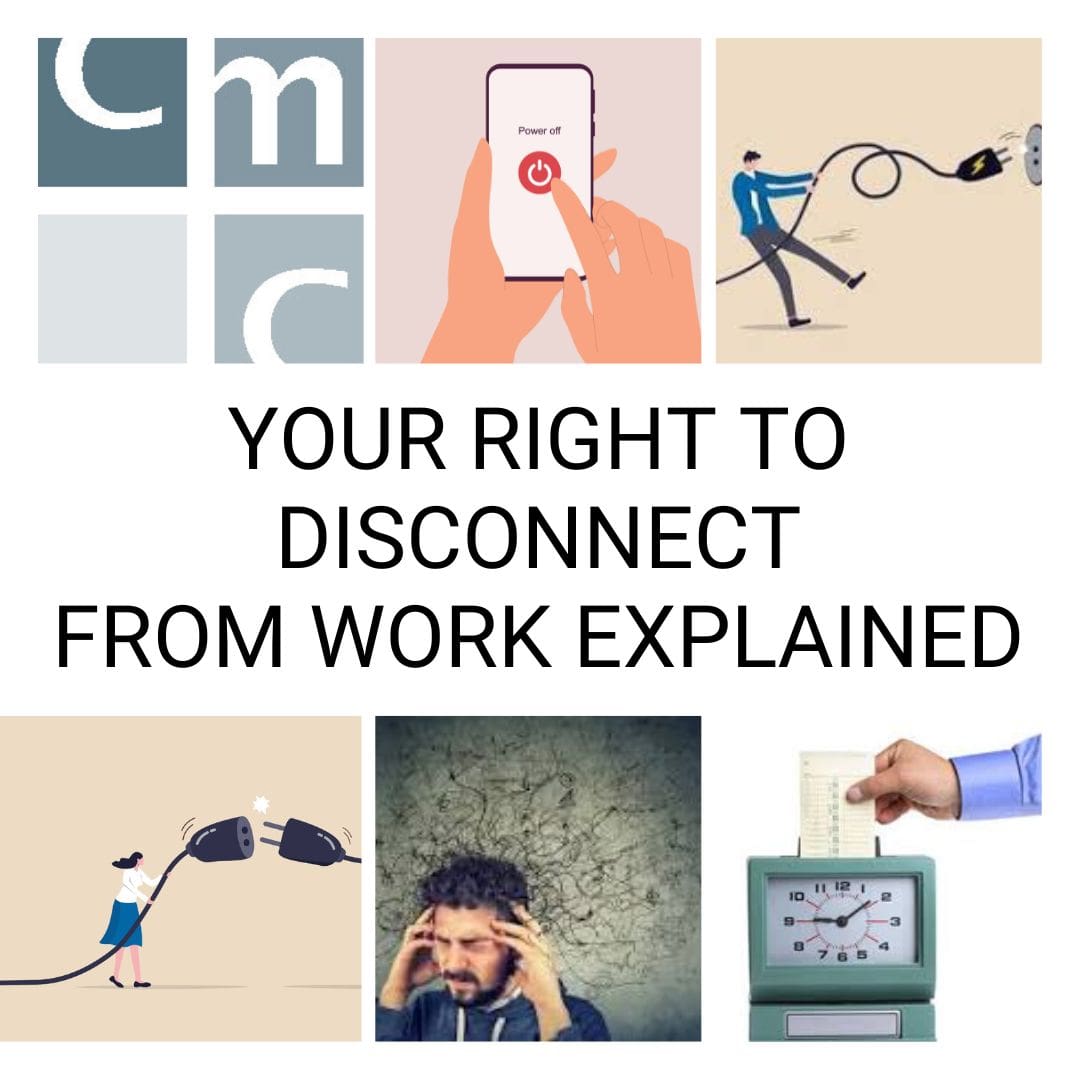There are changes on the way for employees which will assist in being able to disconnect from work out of hours. These changes follow similar laws which have been made in other countries including France, Italy, Ireland and Mexico.
The laws reflect the increasing concern about the rise in work-related mental health issues, particularly those associated with stress and overwork. The “right to disconnect” is seen as an integral way of promoting employee wellbeing.
The changes commence on 26 August 2024 for employees of businesses which have more than 15 employees and on 26 August 2025 for other small businesses.
This means that an employee will have the right to refuse contact with their employment outside their working hours unless that refusal is unreasonable. This right includes the right to refuse to monitor, read or respond to contact from their employer or a third party (such as a client) outside their working hours.
With today’s technology, some of us feel always “on the clock” and feel that we need to respond to emails or messages when we are not working. These new rights will mean that, unless it is unreasonable to do so, you can disconnect from your workplace during non-working hours.
Some of the factors which will be considered in determining whether it is reasonable for the employee to refuse contact outside their working hours are: the reason for the contact including whether there is any urgency, the method of the contact (for example a phone call versus an email), whether the employee is compensated for being available at the time the contact is made or is compensated for working outside their ordinary hours of work, what the employee’s role and level of responsibility is and the employee’s personal circumstances including any family or caring responsibilities.
All industrial awards which cover people employed in the federal system under the Fair Work Act 2009 are required to be varied to include a term about the right to disconnect by 26 August 2024 and specific rules will be added to awards to explain how this new right would apply in a particular industry and to particular occupations.
Employers may be concerned about how these laws impact on productivity and communication with clients particularly in fast-paced industries. The new laws are intended to lead to the establishment of clear guidelines and expectations in the workplace around out of hours contact.
If you are either an employee or an employer and wish to discuss the impact of these new changes on you or your business, contact our expert employment law solicitors for advice.




